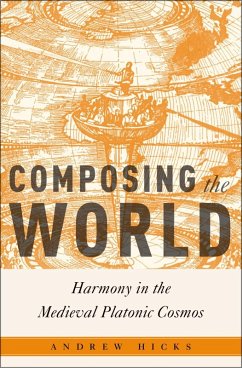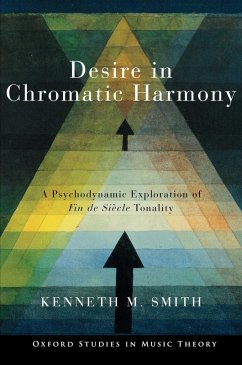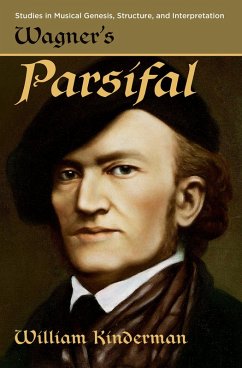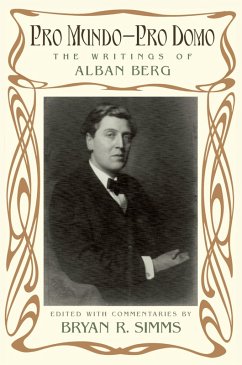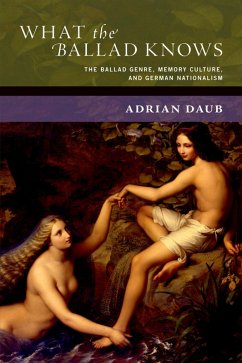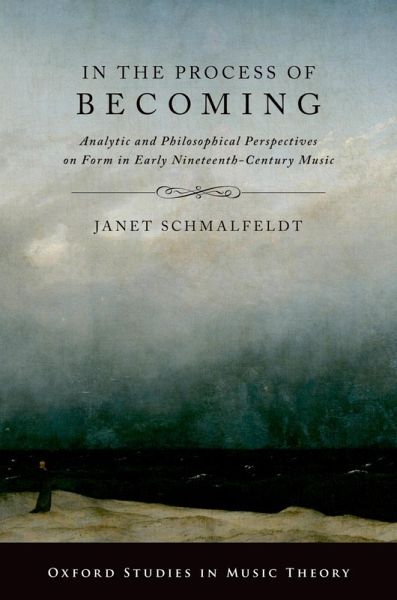
In the Process of Becoming (eBook, ePUB)
Analytic and Philosophical Perspectives on Form in Early Nineteenth-Century Music
Versandkostenfrei!
Sofort per Download lieferbar
22,95 €
inkl. MwSt.
Weitere Ausgaben:

PAYBACK Punkte
11 °P sammeln!
With their insistence that form is a dialectical process in the music of Beethoven, Theodor Adorno and Carl Dahlhaus emerge as the guardians of a long-standing critical tradition in which Hegelian concepts have been brought to bear on the question of musical form. Janet Schmalfeldt's ground-breaking account of the development of this Beethoven-Hegelian tradition restores to the term "form" some of its philosophical associations in the early nineteenth century, when profound cultural changes were yielding new relationships between composers and their listeners, and when music itself-in particul...
With their insistence that form is a dialectical process in the music of Beethoven, Theodor Adorno and Carl Dahlhaus emerge as the guardians of a long-standing critical tradition in which Hegelian concepts have been brought to bear on the question of musical form. Janet Schmalfeldt's ground-breaking account of the development of this Beethoven-Hegelian tradition restores to the term "form" some of its philosophical associations in the early nineteenth century, when profound cultural changes were yielding new relationships between composers and their listeners, and when music itself-in particular, instrumental music-became a topic for renewed philosophical investigation. Precedents for Adorno's and Dahlhaus's concept of form as process arise in the Athenäum Fragments of Friedrich Schlegel and in the Encyclopaedia Logic of Hegel. The metaphor common to all these sources is the notion of becoming; it is the idea of form coming into being that this study explores in respect to music by Beethoven, Schubert, Mendelssohn, Chopin, and Schumann. A critical assessment of Dahlhaus's preoccupation with the opening of Beethoven's "Tempest" Sonata serves as the author's starting point for the translation of philosophical ideas into music-analytical terms-ones that encourage listening "both forward and backward," as Adorno has recommended. Thanks to the ever-growing familiarity of late eighteenth-century audiences with formal conventions, composers could increasingly trust that performers and listeners would be responsive to striking formal transformations. The author's analytic method strives to capture the dynamic, quasi-narrative nature of such transformations, rather than only their end results. This experiential approach to the perception of form invites listeners and especially performers to participate in the interpretation of processes by which, for example, a brooding introduction-like opening must inevitably become the essential main theme in Schubert's Sonata, Op. 42, or in which tremendous formal expansions in movements by Mendelssohn offer a dazzling opportunity for multiple retrospective reinterpretations. Above all, In the Process of Becoming proposes new ways of hearing beloved works of the romantic generation as representative of their striving for novel, intensely self-reflective modes of communication.
Dieser Download kann aus rechtlichen Gründen nur mit Rechnungsadresse in A, B, BG, CY, CZ, D, DK, EW, E, FIN, F, GR, HR, H, IRL, I, LT, L, LR, M, NL, PL, P, R, S, SLO, SK ausgeliefert werden.




